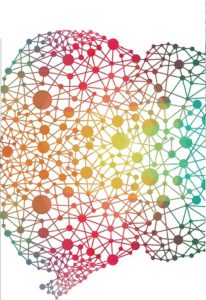
Science, conscience and complexity
Modern science, especially from the seventeenth century onwards, built a new  world that renounced metaphysics, theory, and was methodologically rooted in the mathematical project of nature mastery and the experiments and measurements for this domain project.
world that renounced metaphysics, theory, and was methodologically rooted in the mathematical project of nature mastery and the experiments and measurements for this domain project.
But has dominated nature reacted and reacted in unthought ways, extreme climates whether from European summers or American colds, rains and burns, where even the oceans already show signs of depletion, dominate or destroy nature? and there are reactions from nature itself, such as the pandemic and natural disasters.
The very limits of science as logic and power are in check, will we rule our lives solely by markets and their values, do cold numbers say anything about man?
In addition to the physical and scientific paradigms about new technologies, there are emerging social problems that worry even those who have always taken advantage of markets, economist Federico Cingano in an OECD study said: “When income inequality increases, economic growth falls,” thus it is inevitable to approach the subject from any perspective.
Beyond the problem of consciousness, philosophically or technically, there is a social dimension that is correlated, not indifferent, this also holds for consciousness in the historical question.
Edgar Morin warns of the teaching system, where it is still hermetically taught: “We do not teach the understanding of the other, which is fundamental in our day, we do not teach uncertainty, what is the human being, as if our human identity does not it was of no interest.
The most important things to know are not taught, ”he said in the Fronteiras do Pensamento (Thought Borders), a Brazilian cultural program.
He sees the crisis of democracy as the obscure relationship with the “enormous powers of money, which has led to corruption everywhere.
The emptiness of thought, coupled with this corruption, leads to a loss of confidence in democracy, and this has favored the neutral authoritarian regimes as we have seen in Turkey, Russia, Hungary and as we now see in the crisis of democracy in Peru and Brazil, ”the case Bolivia today is a separate case.
He also sees with concern the fundamentalist and ethnic closure: “Unless people become aware of the human destiny community on earth, people will close in on their religious, ethnic identities, and so on.
We live in a dark period of history, the only consolation is that these dark periods are not eternal ”we believe in the future. Edgar Morin’s full interview on Thought Frontiers follows below:









